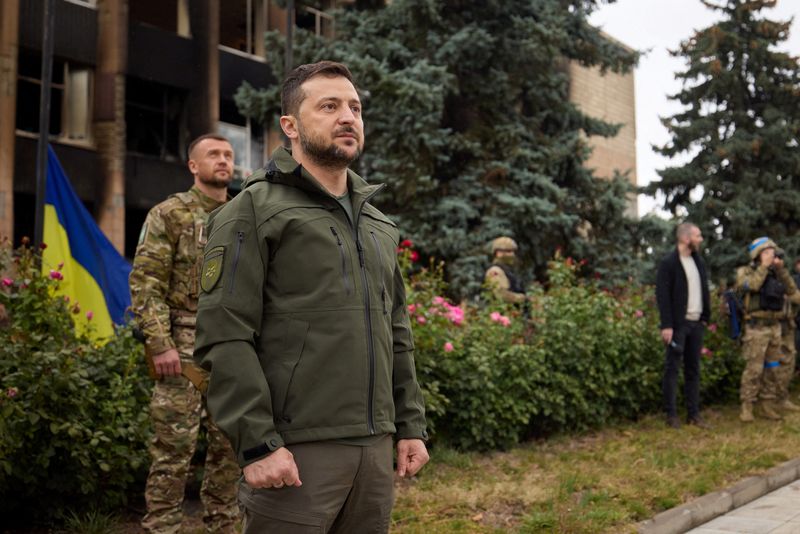KYIV (Reuters) - Ukrainian President Volodymyr Zelenskiy and his government are studying proposals drawn up by senior officials and the former head of NATO that envisage Western countries providing future security guarantees to Kyiv.
Russia has already condemned the draft document, which also underlines Ukraine's continued "aspiration to join NATO and benefit from its mutual defence arrangements".
Moscow views NATO's eastern expansion as a direct threat to its own security and has cited the prospect of Ukraine building closer ties with the alliance as a major reason for its invasion on Feb. 24.
Zelenskiy praised the report, drawn up by a working group that included his chief of staff Andriy Yermak and Anders Fogh Rasmussen, a former NATO Secretary-General.
The report "should become the basis of the future security compact", Zelenskiy said on Tuesday on formally receiving the recommendations.
The report makes a series of recommendations aimed at bolstering the country's longer term security that fall short of offering full NATO membership, which some member states are wary of doing because of Russia's opposition.
"This requires a multi-decade effort of sustained investment in Ukraine’s defence industrial base, scalable weapons transfers and intelligence support from allies, intensive training missions and joint exercises under the European Union and NATO flags," the report said.
"(The Kyiv Security Compact) will bring a core group of allied countries together with Ukraine," it said, adding that these could include many leading NATO members including the United States, Canada, Britain, France, Germany and Poland.
It was not immediately clear how Western countries would respond to the proposals, though many are already providing significant military assistance to Ukraine to help it fight back against Russia's invasion.

The Kremlin said the recommendations served to highlight the need for what Moscow calls its "special military operation" in Ukraine.
The idea of Ukraine joining NATO remains "the main threat to Russia", Kremlin spokesman Dmitry Peskov told reporters on Wednesday.